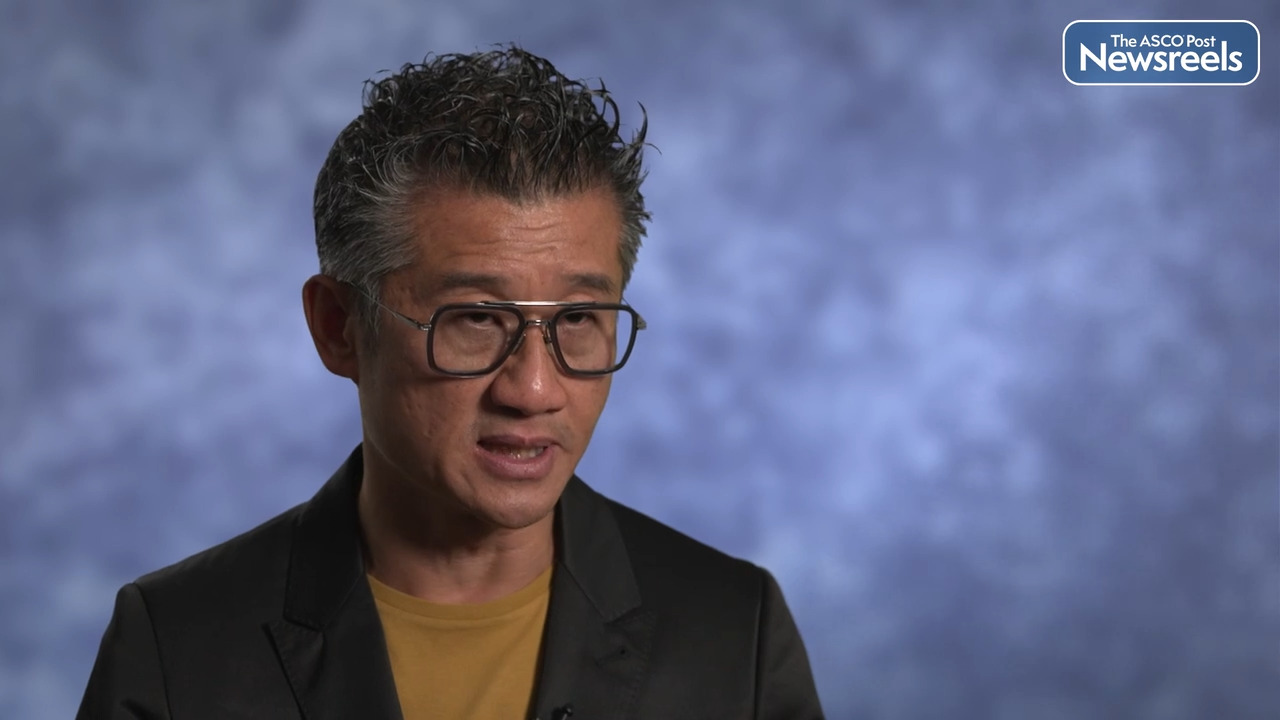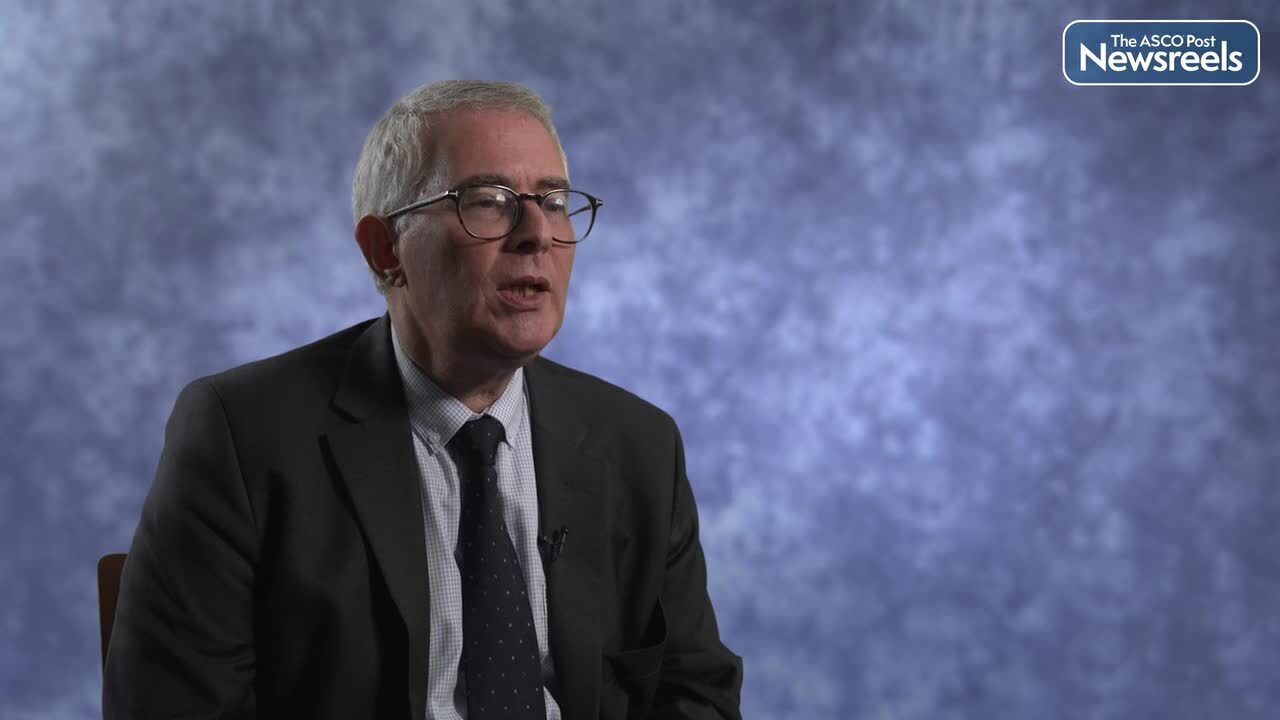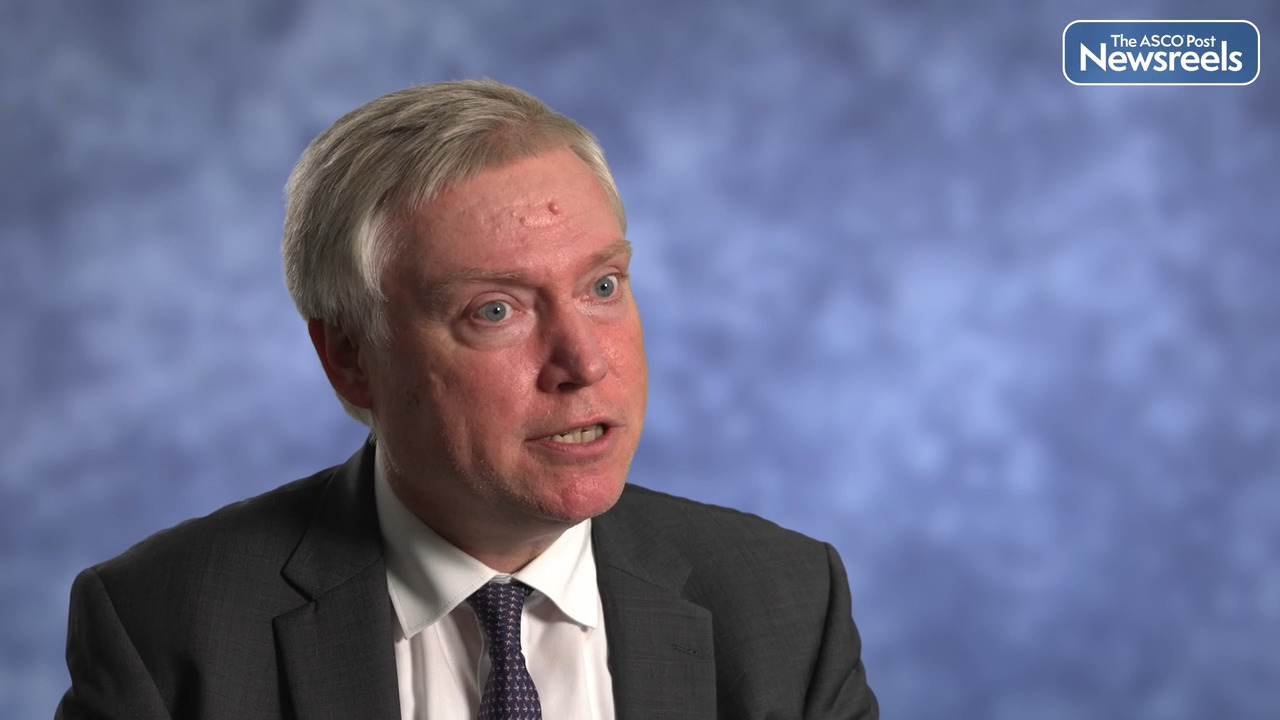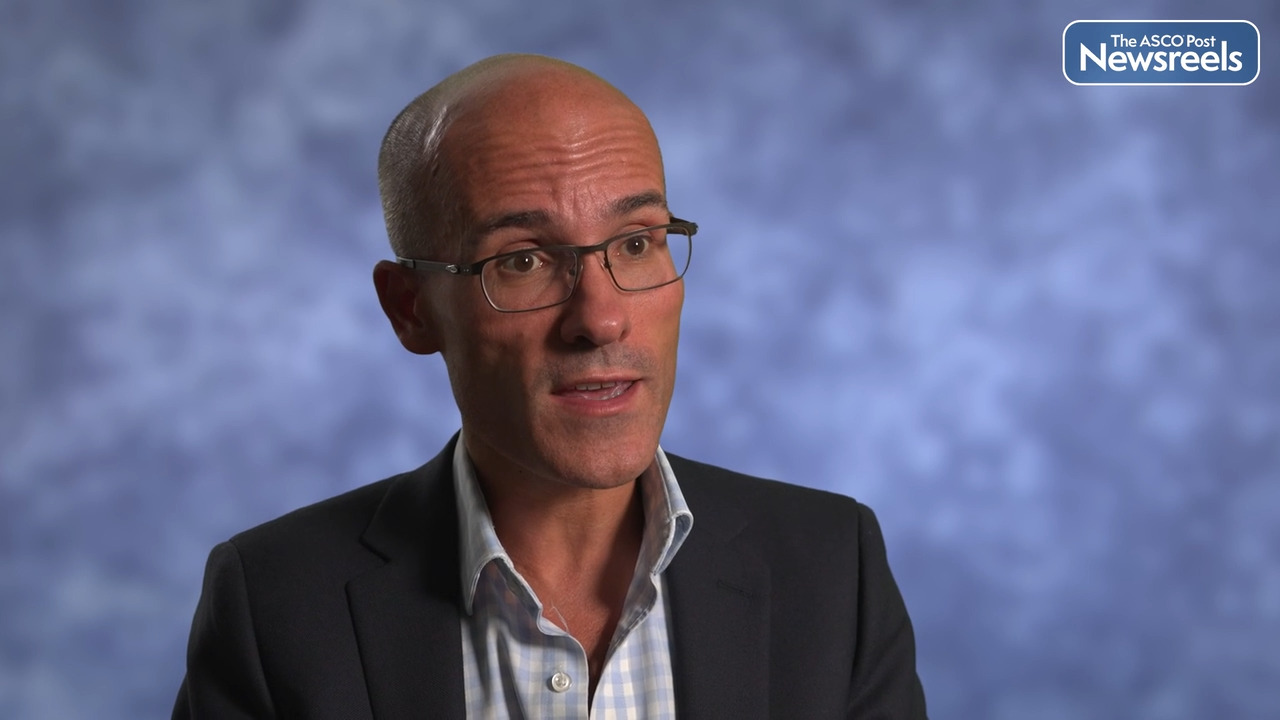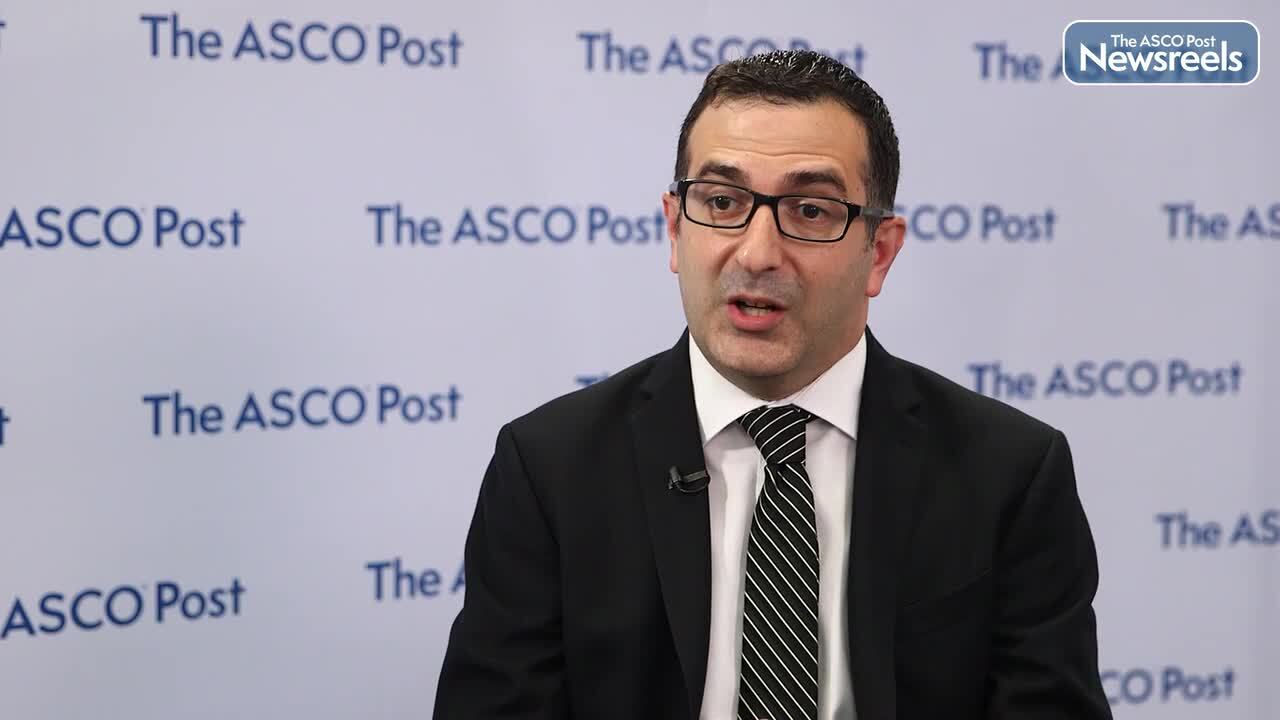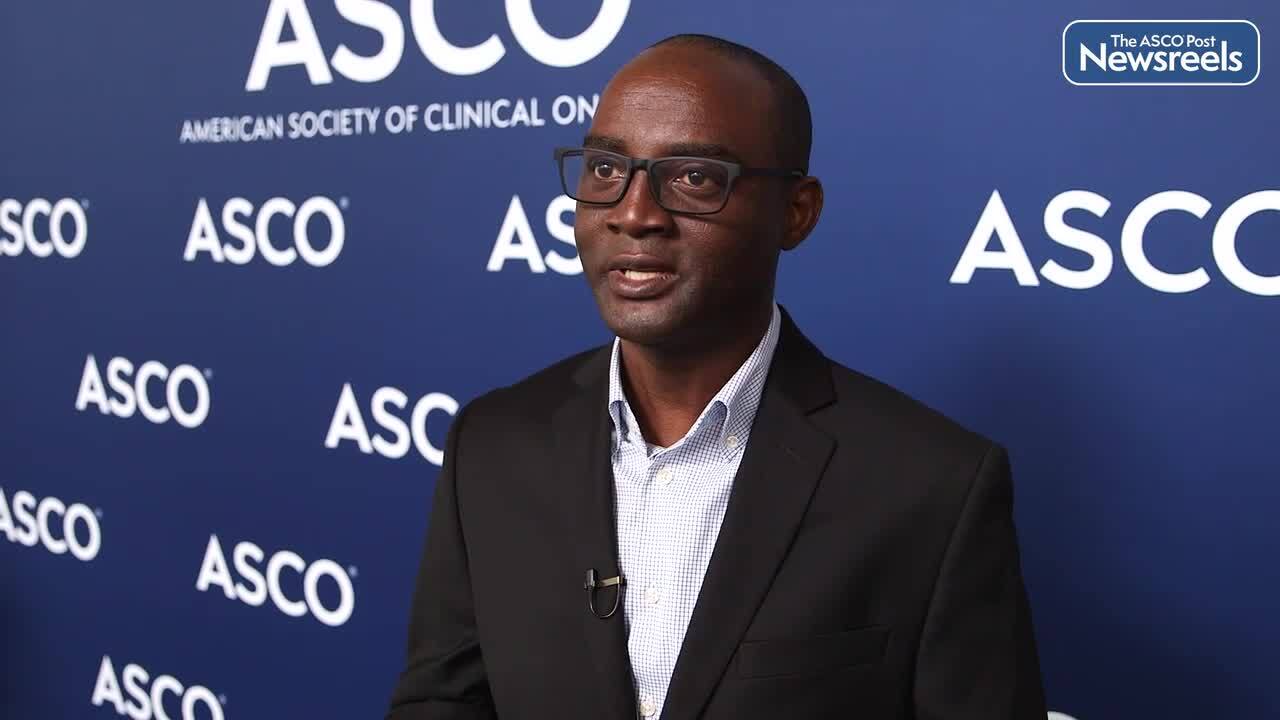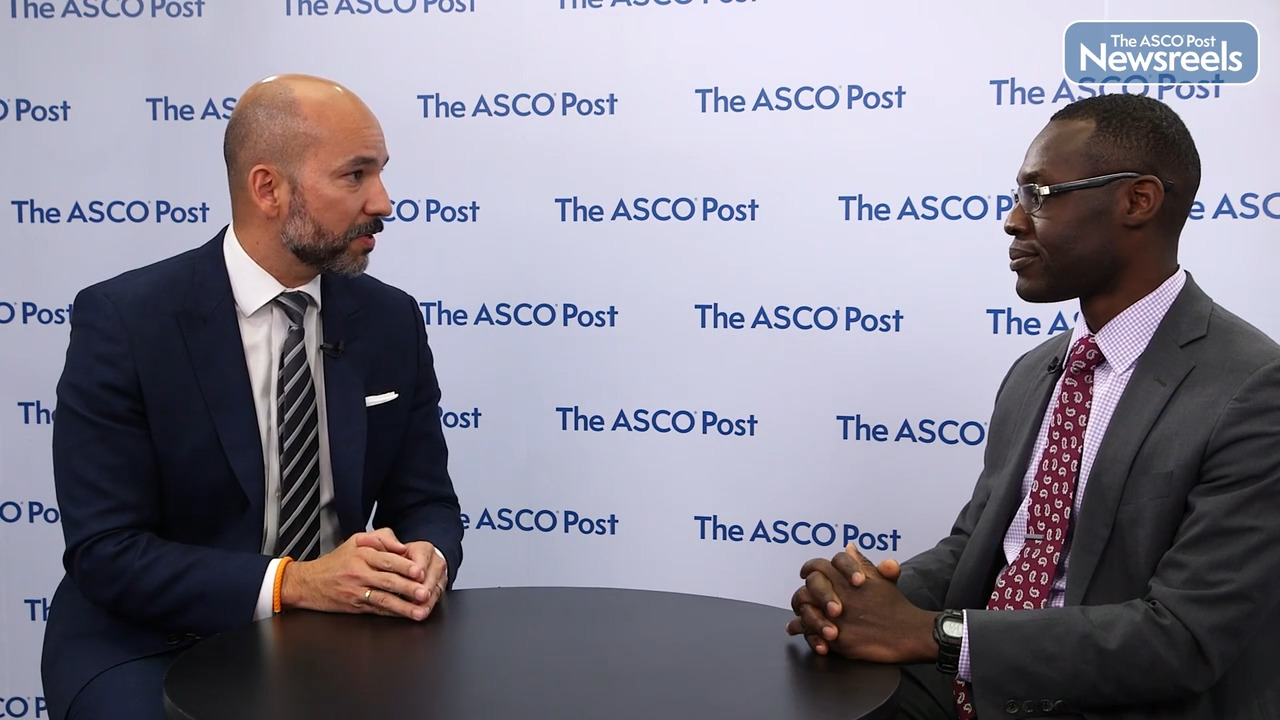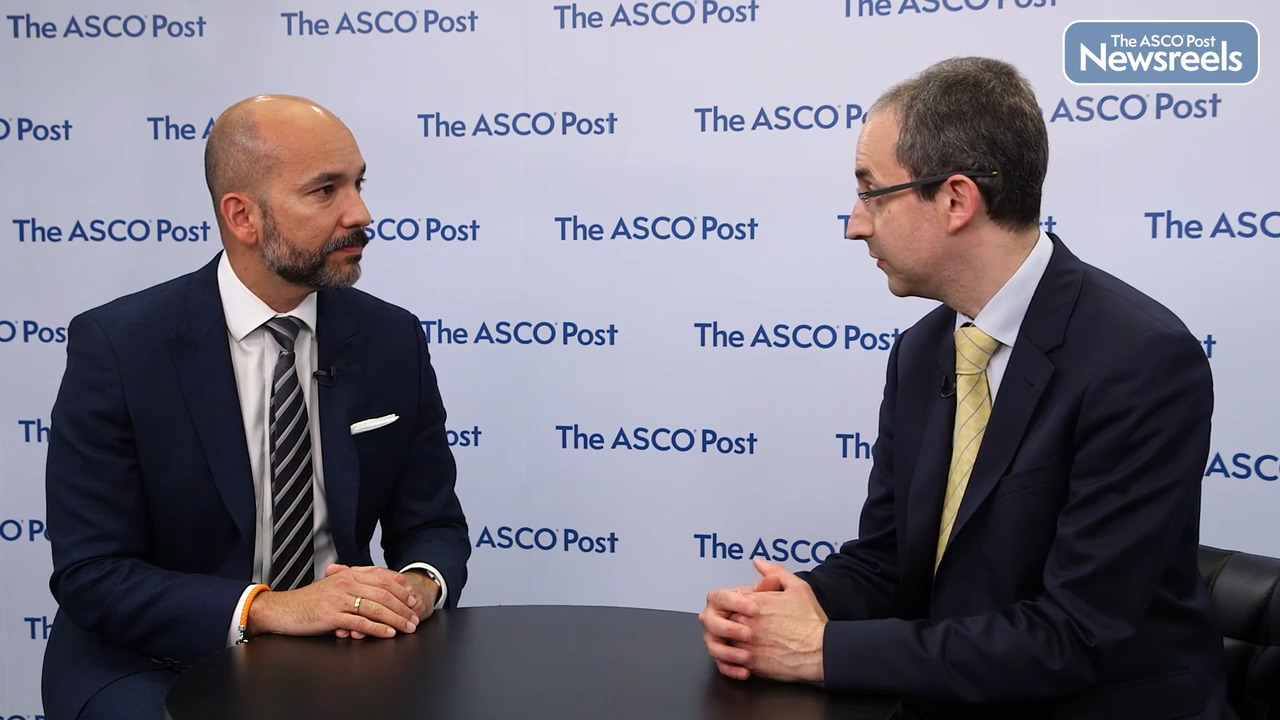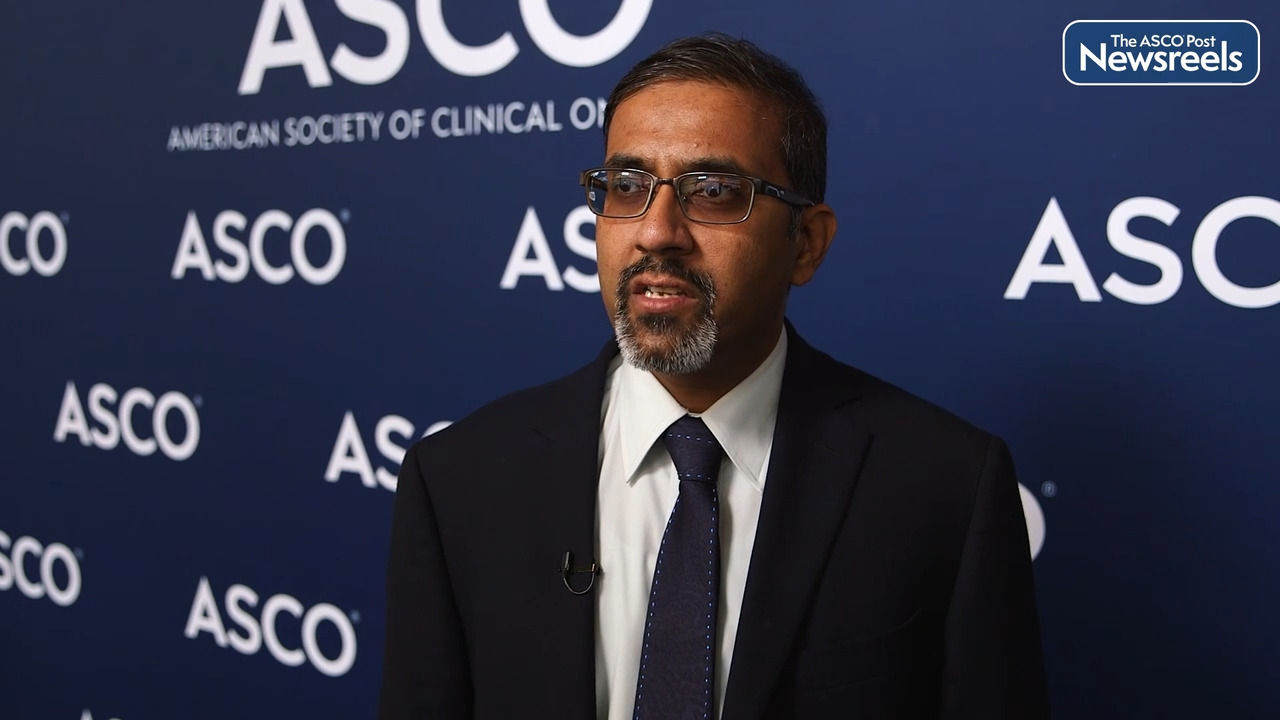National Lung Screening Trial Results Highlight Importance of Lifelong Follow-up
Approximately 6% of patients with stage I to III lung cancer develop a second primary lung cancer within 5 years of their initial diagnosis, according to research presented at the International Association for the Study of Lung Cancer (IASLC) 2022 World Conference on Lung Cancer.1 Analysis of data...
Costs of Cancer Treatment for Younger, Privately Insured Patients
A new, large study led by researchers at the American Cancer Society (ACS) and The University of Texas MD Anderson Cancer Center showed the rising costs of cancer treatment led to increases in total costs of care, and when compounded with greater cost-sharing, increased out-of-pocket costs for...
Tony S.K. Mok, MD, on NSCLC: Review of Recent Data From the SUNRISE and ORIENT-31 Trials
Tony S.K. Mok, MD, of The Chinese University of Hong Kong, discusses two late-breaking abstracts presented at ESMO 2022: the phase II SUNRISE study, which compared sintilimab plus anlotinib vs platinum-based chemotherapy as first-line therapy in patients with metastatic non–small cell lung cancer (NSCLC); and the ORIENT-31 trial, which compared sintilimab with or without IBI305 (a bevacizumab biosimilar) plus chemotherapy in patients with EGFR-mutated nonsquamous NSCLC who experienced disease progression on EGFR tyrosine kinase inhibitors.
High-Intensity Intervention Helps One-Third of Participants in Lung Cancer Screening Program Quit Smoking
Despite significant advancements in cancer therapy, a primary means to avoid lung cancer is prevention, and smoking cessation is the most basic intervention. Unfortunately, for long-term smokers, that intervention can sometimes be the most challenging. According to data presented during the...
Lung Cancer Screening Increases Percentage of Stage I Cases Detected, While Reducing Percentage of Stage IV Cases Detected
Implementing lung cancer screening at four diverse health-care systems resulted in an 8.4% increase in the number of stage I lung cancers detected and a 6.6% decrease in the detection of stage IV disease, according to research published by Vachani et al in the Journal of Thoracic Oncology. The...
Outcomes of Lung Cancer Screening in Individuals With or Without Lung-Related Comorbidities
In a prospective cohort study reported in JAMA Network Open, Metwally et al found no significant differences in positive examination, cancer detection, or false-positive rates among individuals with vs without self-reported lung-related comorbidities undergoing low-dose computed tomography lung...
Updated Overall Survival Findings With Adjuvant Erlotinib vs Vinorelbine/Cisplatin in EGFR-Mutant Stage IIIA NSCLC
As reported in the Journal of Clinical Oncology by Yue et al, an updated analysis of the Chinese phase II EVAN study indicated a sizable overall survival advantage with adjuvant erlotinib vs vinorelbine/cisplatin in patients with R0 resected stage IIIA EGFR-mutant non–small cell lung cancer...
Gérard Zalcman, MD, PhD, on Non–Small Cell Lung Cancer: Phase III Trial Findings on Nivolumab and Ipilimumab
Gérard Zalcman, MD, PhD, of France’s Bichat-Claude Bernard Hospital, Assistance Publique–Hôpitaux de Paris, discusses phase III results from the IFCT-1701 trial, which explored the questions of whether to administer nivolumab plus ipilimumab for 6 months or whether to prolong the treatment in patients with advanced non–small cell lung cancer (Abstract 972O).
Updated Results From the ADAURA Trial of Adjuvant Osimertinib in EGFR-Mutated NSCLC
Newly released results from the phase III ADAURA trial revealed that osimertinib yielded a 5.5-year median disease-free survival in the postsurgical treatment of patients with EGFR-mutated non–small cell lung cancer (NSCLC), and nearly three in four patients treated with adjuvant osimertinib were...
Martin Reck, MD, PhD, on NSCLC: New Findings on Cemiplimab, Nivolumab, and Ipilimumab
Martin Reck, MD, PhD, of Germany’s Lung Clinic Grosshansdorf, details two trials that included patients with advanced non–small cell lung cancer: 3-year survival outcomes in the EMPOWER-Lung 1 study of continued cemiplimab-rwlc beyond disease progression with the addition of chemotherapy, and phase III results from the IFCT-1701 trial of nivolumab plus ipilimumab 6-month treatment vs treatment continuation (LBA54 and Abstract 972O).
Charles Swanton, PhD, on Non–Small Cell Lung Cancer Induced by Air Pollution
Charles Swanton, PhD, of The Francis Crick Institute, discusses a newly discovered mechanism of action for air pollution–induced non–small cell lung cancer in which particles linked to climate change appear to promote cancerous changes. The finding might pave the way for new potential approaches to lung cancer prevention and treatment (Abstract LBA1).
Researchers Examine How Air Pollution May Drive Lung Cancer in Never-Smokers
A new mechanism has been identified through which very small pollutant particles in the air may trigger lung cancer in people who have never smoked, paving the way to new prevention approaches and the development of novel therapies, according to late-breaking data reported by Charles Swanton, MBBS, ...
Addition of Sintilimab and Bevacizumab Biosimilar to Chemotherapy for Patients With Advanced EGFR-Mutated NSCLC and Disease Progression on EGFR Inhibitors
In an interim analysis of the Chinese phase III ORIENT-31 trial reported in The Lancet Oncology, Lu et al found that the addition of sintilimab and the bevacizumab biosimilar IBI305 to chemotherapy prolonged progression-free survival in patients with advanced EGFR-mutated nonsquamous non–small cell ...
DART Trial: Concurrent Radiotherapy Plus Durvalumab Active in Older Patients With Locally Advanced Lung Cancer
Interim results of a phase II study have demonstrated the safety and feasibility of treating elderly and frail patients with locally advanced non–small cell lung cancer (NSCLC) with the monoclonal antibody durvalumab during and after radiation therapy, without chemotherapy. The results of a...
Addition of Chemotherapy to Gefitinib in First-Line Treatment of Advanced NSCLC With EGFR Mutations
In an updated analysis of the Japanese phase III NEJ009 trial reported in the Journal of Clinical Oncology, Miyauchi et al found that gefitinib plus carboplatin/pemetrexed was associated with prolonged progression-free survival and progression-free survival 2—but loss of significance in overall...
Deep-Learning Algorithm May Streamline Lung Cancer Radiotherapy Treatment
Lung cancer, the most common cancer worldwide, is targeted with radiation therapy in nearly one-half of cases. Radiation therapy planning is a manual, resource-intensive process that can take days to weeks to complete, and even highly trained physicians vary in their determinations of how much...
International Career Joins Cancer Research and Clinical Care of Patients With Lung Cancer
Pilar Garrido, MD, PhD, is Head of the Medical Oncology Department, University Hospital Ramón y Cajal, Madrid. She is also Co-Director of the Cancer Research Group at Instituto Ramón y Cajal de Investigación Sanitaria (IRYCIS). Her main areas of research and clinical interest are thoracic tumors,...
Adding CT to X-Ray for Follow-up of Completely Resected NSCLC
In a French phase III trial (IFCT-0302) reported in The Lancet Oncology, Westeel et al found that a strategy including computed tomography (CT) and x-ray vs x-ray alone did not improve overall survival when used in the follow-up of patients with completely resected non–small cell lung cancer...
New Guideline Updates Address Stage IV Non–Small Cell Lung Cancer With and Without Driver Alterations
Two ASCO guideline updates provide new evidence-based recommendations for the systemic treatment of stage IV non–small cell lung cancer (NSCLC) with and without driver alterations.1,2 Among several other updates, these new guidelines add the ALK and ROS1 inhibitor lorlatinib and the PD-L1 immune...
Real-World Evidence Confirms Survival Benefit of Durvalumab in Locally Advanced Non–Small Cell Lung Cancer
In locally advanced non–small cell lung cancer (NSCLC), immunotherapy consolidation with the PD-L1 inhibitor durvalumab improved overall survival in the PACIFIC trial,1 thus leading to its use after chemoradiotherapy as a standard of care. Real-world evidence of durvalumab’s effect on overall and...
Study Shows Germline Testing May Be Warranted for All Patients With Lung Cancer
Germline testing may be warranted for all patients with lung cancer, according to research presented by Sorscher et al during the August ASCO Plenary Series Program (Abstract 388570). The retrospective review of nearly 8,000 patients with lung cancer undergoing germline testing found that 14.9% had ...
Sugemalimab Found to Be a Safe and Effective Consolidation Therapy for Patients With Unresectable Stage III NSCLC
The human monoclonal antibody sugemalimab is a safe and effective consolidation therapy for patients with unresectable stage III non–small cell lung cancer (NSCLC) without disease progression after either concurrent chemoradiotherapy (cCRT) or sequential chemoradiotherapy (sCRT), according to...
Sexual Dysfunction Is Prevalent Among Women With Lung Cancer
Sexual dysfunction is highly prevalent in women with lung cancer, with most participants in a survey reporting little to no interest in sexual activity, according to research led by Narjust Florez (Duma), MD, presented at the International Association for the Study of Lung Cancer (IASLC) World...
Study Investigates Incidence, Timing, and Survival of Patients With Second Primary Lung Cancer
Using data from the National Lung Screening Trial (NLST), researchers found that the incidence of second primary lung cancer was approximately 4% among the entire cohort of patients with lung cancer and was as high as 8% among patients undergoing surgery for stage IA disease. The research was...
NELSON Trial Protocol May Be More Sensitive Than NLST, May Increase Benefits of Lung Cancer Screening
The protocol used to screen and detect lung cancer in the NELSON trial may be more sensitive than the protocol used in the National Lung Cancer Screening Trial (NLST), particularly for early-stage cancers, according to research reported by de Nijs et al at the International Association for the...
Informed Consent Forms for Lung Cancer Clinical Trials May Be a Barrier to Informed Participation
Informed consent forms can be overwhelming for patients—they are written at a level that is too high for many patients, possibly impeding true informed consent, according to a report given by King-Kallimanis et al at the International Association for the Study of Lung Cancer (IASLC) 2022 World...
Durvalumab Plus Concurrent Radiotherapy in Unresectable Locally Advanced NSCLC: DOLPHIN Study
Researchers from Japan recently reported that the first phase II study to evaluate the efficacy and safety of durvalumab and concurrent curative radiation therapy for PD-L1–positive unresectable locally advanced non–small cell lung cancer (NSCLC) without chemotherapy met its primary endpoint with...
FDA Grants Accelerated Approval to Trastuzumab Deruxtecan for HER2-Mutant NSCLC
On August 11, 2022, the U.S. Food and Drug Administration (FDA) granted accelerated approval to fam-trastuzumab deruxtecan-nxki (T-DXd; Enhertu) for adult patients with unresectable or metastatic non–small cell lung cancer (NSCLC) whose tumors have activating HER2 mutations, as detected by an...
FDA Approves Capmatinib for Metastatic NSCLC With MET Exon 14 Skipping Mutations
On August 10, 2022, the U.S. Food and Drug Administration (FDA) granted regular approval to capmatinib (Tabrecta) for adult patients with metastatic non–small cell lung cancer (NSCLC) whose tumors have a mutation leading to mesenchymal-epithelial transition (MET) exon 14 skipping, as detected by an ...
Research Suggests Air Pollution Be Included as Risk Factor for Nonsmoking Patients With Lung Cancer
Researchers from Vancouver, British Columbia examined the effect of duration of past exposure to air pollution with lung cancer diagnosis in new research presented by Myers et al at the International Association for the Study of Lung Cancer (IASLC) World Conference on Lung Cancer 2022 (Abstract...
Disparities in the Diagnosis of Lung Cancer Among Younger vs Older Adults
Younger patients with lung cancer are significantly more likely than older patients to be diagnosed with later stages of disease, illustrating the need to develop strategies to increase the early detection of lung cancer among younger patients who are currently ineligible for lung cancer screening. ...
Increased Utilization of SBRT Has Decreased Treatment Disparities for Early-Stage NSCLC
The use of stereotactic body radiotherapy (SBRT) for patients with non–small cell lung cancer (NSCLC) can reduce treatment disparities between White and Black patients, according to research presented by Ganesh et al at the International Association for the Study of Lung Cancer (IASLC) World...
Study Finds Adding Tremelimumab and Durvalumab to Chemotherapy Improves Overall Survival in Metastatic NSCLC Regardless of KRAS/STK11/KEAP1 Mutations
Patients with metastatic non–small cell lung cancer (NSCLC) who received a combined therapy of tremelimumab, durvalumab, and chemotherapy experienced longer overall survival compared with those who received chemotherapy alone, regardless of STK11, KEAP1, or KRAS mutational status. These findings...
CancerLinQ and Owkin Collaborate to Use Federated Learning on Real-World Oncology Data to Better Understand Lung Cancer Treatment
ASCO’s CancerLinQ and Owkin recently announced a new research collaboration to use artificial intelligence (AI) to analyze real-world oncology data with the aim to understand why some cases of metastatic non–small cell lung cancer (NSCLC) are resistant to first-line immunotherapy. Using data from...
How Smoking Cessation After a Lung Cancer Diagnosis Improves Overall Survival
Despite data showing that cigarette smoking is the number one risk factor for the development of lung cancer,1 and a leading cause of preventable disease, disability, and death in the United States, an estimated 30.8 million American adults continue to smoke cigarettes.2 Globally, the number of...
Survey Reveals That Most Americans Are Not Concerned About Getting Lung Cancer
A recent survey shows that only 40% of Americans are concerned that they might get lung cancer, and only about one in five have talked to their doctor about their risk for the disease, despite lung cancer being the leading cause of cancer deaths in the United States. The 2022 Lung Health Barometer, ...
Rami Manochakian, MD, on NSCLC: Clinical Implications of Findings on Nivolumab Plus Chemotherapy
Rami Manochakian, MD, of Mayo Clinic Florida, discusses the phase II findings of the NADIM II trial, which confirmed that, in terms of pathologic complete response as well as the feasibility of surgery, combining nivolumab and chemotherapy was superior to chemotherapy alone as a neoadjuvant treatment for locally advanced, resectable stage IIIA non–small cell lung cancer (Abstract 8501).
Adagrasib in Previously Treated Patients With KRAS G12C–Mutated Advanced NSCLC
As reported in The New England Journal of Medicine by Pasi A. Jänne, MD, PhD, and colleagues, findings in a phase II cohort of the multicohort KRYSTAL-1 phase I/II study indicate that the KRAS G12C inhibitor adagrasib showed activity in previously treated patients with unresectable or metastatic...
Poziotinib Shows Activity in EGFR Exon 20–Mutant NSCLC, With Efficacy Dependent on Insertion Location
A phase II clinical trial of poziotinib for patients with non–small cell lung cancer (NSCLC) and epidermal growth factor receptor (EGFR) exon 20 mutations found the drug had significant antitumor activity and the efficacy was highly dependent on the location of the exon 20 loop insertion, which may ...
Antibody Response to SARS–CoV-2 Wild-Type Virus and Variants After mRNA Vaccination in Patients With NSCLC
In a single-institution study reported in the Journal of Clinical Oncology, Valanparambil et al found that one-quarter of patients with non–small cell lung cancer (NSCLC) had poor antibody responses to the SARS–CoV-2 wild-type (WT) strain after mRNA vaccination, and that neutralizing antibody...
CLN-081 Shows Selective Activity in NSCLC With EGFR Exon 20 Insertions
CLN-081, a novel agent targeted to non–small cell lung cancer (NSCLC) cells harboring epidermal growth factor receptor (EGFR) exon 20 insertion mutations—ie, the addition of nucleotide base pairs in exon 20 of the EGFR gene, a known oncogenic driver event—holds promise, according to the results of...
Does Tumor Mutational Burden Influence Response to PD-1/PD-L1 Inhibitors Among Patients With Advanced NSCLC?
In a retrospective cohort study reported in JAMA Oncology, Ricciuti et al found that patients with advanced non–small cell lung cancer (NSCLC) with higher tumor mutational burden (TMB) had better outcomes with PD-1/PD-L1 inhibitor treatment vs those with lower TMB across thresholds of PD-L1...
Chipping Away at Targetable Mutations in NSCLC: Amivantamab in NSCLC With MET Exon 14 Skipping Mutations
Dual targeting with the bispecific antibody amivantamab-vmjw showed antitumor activity and tolerability in patients with metastatic non–small cell lung cancer (NSCLC) and MET exon 14 skipping mutations, according to results of the ongoing phase I CHRYSALIS study.1,2 Updated results were presented...
Study Finds COVID-19 Vaccines Are Safe for Patients Treated With Immune Checkpoint Inhibitors for Lung Cancer
Patients with cancer have received priority status to receive COVID-19 vaccinations, but limited data are available regarding the safety and efficacy of the vaccines for patients treated with immune checkpoint inhibitors for lung cancer. Now, a new study published by Hibino et al in the Journal of...
Maxwell Oluwole Akanbi, MD, PhD, on Lung Cancer: The Effect of Screening on the Incidence of Advanced Disease
Maxwell Oluwole Akanbi, MD, PhD, of McLaren Regional Medical Center, discusses the study he conducted, using the SEER database, to evaluate the impact of lung cancer screening recommendations on low-dose CT scanning. The data suggest that guidelines from the U.S. Preventive Services Task Force led to a more rapid decline in the incidence of advanced disease in the United States, especially among minority populations (Abstract 10506).
Immunotherapy Has Given Me Back My Life
Hearing the words “You have cancer” is a devastating blow, especially when the biggest health issues you’ve had to contend with over more than 6 decades are common colds and knee and hip replacements. But in 2017, the symptoms I thought were from a lingering summer cold drove me to seek medical...
Gilberto de Lima Lopes, Jr, MD, MBA, and Oladimeji Akinboro, MD, MPH, on NSCLC: Outcomes of Anti–PD-(L)1 Therapy With or Without Chemotherapy in the First-Line Setting
Gilberto de Lima Lopes, Jr, MD, MBA, of Sylvester Comprehensive Cancer Center at the University of Miami, and Oladimeji Akinboro, MD, MPH, of the U.S. Food and Drug Administration (FDA), discuss a data analysis, which suggests that most subgroups of patients with advanced non–small cell lung cancer with a PD-L1 score of 50% or greater who are receiving FDA-approved chemotherapy/immunotherapy regimens may have overall survival outcomes comparable to or better than immunotherapy-alone regimens (Abstract 9000).
Gilberto de Lima Lopes, Jr, MD, MBA, and Matthew Krebs, PhD, on NSCLC: Updated Results With Amivantamab-vmjw
Gilberto de Lima Lopes, Jr, MD, MBA, of the Sylvester Comprehensive Cancer Center at the University of Miami, and Matthew Krebs, PhD, of The University of Manchester and The Christie NHS Foundation Trust, discuss results from the CHRYSALIS study. The trial showed that the bispecific antibody amivantamab-vmjw demonstrated antitumor activity, even after prior treatment, in patients with non–small cell lung cancer that exhibits the MET exon 14 skipping mutation (Abstract 9008).
Apar Kishor Ganti, MD, on SCLC: Comparing Quality of Life With Once- and Twice-Daily Thoracic Radiotherapy
Apar Kishor Ganti, MD, of the University of Nebraska Medical Center, discusses results from the CALGB 30610 study, which showed a similar clinical benefit for once- and twice-daily radiotherapy administered to patients with limited-stage small cell lung cancer. While both regimens were well tolerated, patients who received radiotherapy once daily had better quality-of-life scores at week 3 and slightly worse scores at week 12. Patients believed the once-daily regimen was more convenient (Abstract 8504).
Real-World Association Between Smoking History and Overall Survival With First-Line Pembrolizumab in Patients With Advanced NSCLC
In a retrospective cohort study reported in JAMA Network Open, Sanjay Popat, FRCP, PhD, and colleagues found that among patients initiating first-line pembrolizumab for EGFR and ALK wild-type advanced non–small cell lung cancer (NSCLC), ever-smokers had significantly better overall survival vs...
